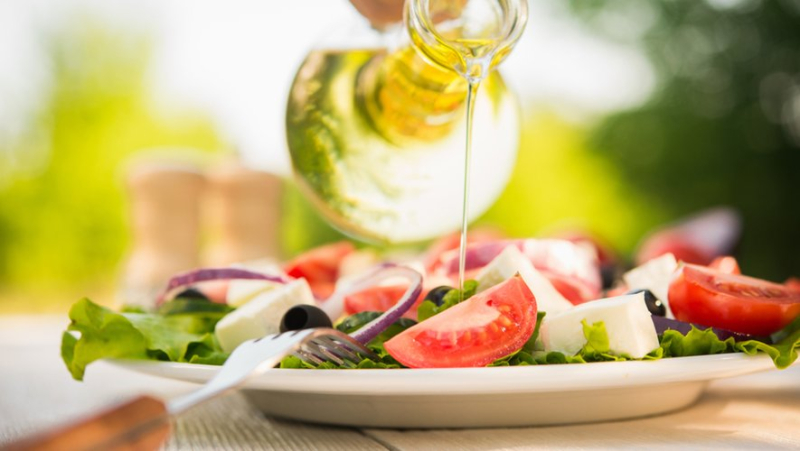Rapeseed, nuts, sunflower… what are the characteristics of vegetable oils and which one to choose ?

Colza, noix, tournesol : le match des huiles végétales
They are the stars of seasoning and are characterized by their diversity. Rapeseed, olive, sunflower… Each vegetable oil of course has its own specificities. And if the choice was precisely not to choose and to focus on variety ?
The composition of vegetable oils depends on various factors, such as the variety of the plant, its geographical origin, and even the year of harvest. But one constant remains: these oils are essentially composed – 99% – triglycerides. These lipids, called "reserve" constitute a source of energy for man. They contain fatty acids, which ideally represent 30% to 40% of our energy intake, but also some vitamins, E in particular.
The fatty acids present in vegetable oils are also characterized by their diversity, which also makes it possible to distinguish the benefits of the products in question. Illustration:
Olive oil is thus composed of up to 75% monounsaturated fatty acids which have the reputation of protecting the walls of our vessels and arteries. They would also help control blood sugar levels. It is not a question of overusing it in your recipes but do not hesitate to use a tablespoon per day: in a salad for example. And as it is less fatty than butter and tolerates heat, you can also use it to cook your food. L’rapeseed oilis also rich in monounsaturated fatty acids, although at a lower level than olive oil (55%). On the other hand, it contains more polyunsaturated fatty acids (particularly omega 3), which are also virtuous on the cardiovascular level. Note, however, that its omega 3 does not tolerate heat. So cooking. Reserve it for seasoning raw vegetables, salads or other steamed vegetables. Sunflower oil is characterized by its imbalance between its fatty acids: too much omega-6 and not enough fatty acids. Omega 3. Which means that it must be consumed very occasionally, in a vinaigrette for example. Furthermore, it can be used for frying and stir-fried dishes but be careful: its smoke point is quite low…hellip;.
In association!
But rather than choosing just one type of oil, don't hesitate to vary the pleasures or even combine them. Taste-wise, if you find olive oil a little neutral, add walnut oil. Which is rich in omega 3. Or rapeseed oil, the lowest in saturated fatty acids. In other words, those which tend to increase the "bad" cholesterol and clog the arteries.




